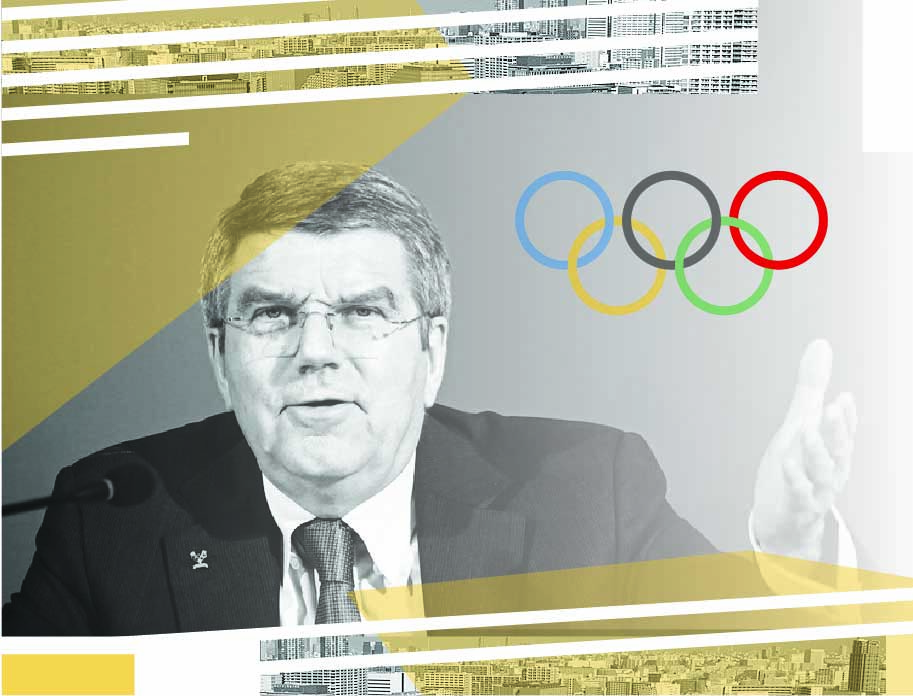
Prof Cody T. Havard
Professor of Sport Commerce at The University of Memphis, where he researches rivalry in consumer settings to better understand its impact on group membership and society. He also produces and hosts the Being a Fan of Disney Podcast with Cody T. Havard, Ph.D.

Section 2: Media Coverage & Representation
- Twitter conversations on Indian female athletes in Tokyo
- ”Unity in Diversity” – The varying media representations of female Olympic athletes
- The Olympic Channel: insights on its distinctive role in Tokyo 2020
- How do we truly interpret the Tokyo Olympic ratings?
- Between sexualization and de-sexualization: the representation of female athletes in Tokyo 2020
- Reshaping the Olympics media coverage through innovation
- An Olympic utopia: separating politics and sport. Primary notes after analyzing the opening ceremony media coverage of mainstream Spanish sport newspapers
- What place is this? Tokyo’s made-for-television Olympics
- The paradox of the parade of nations: A South Korean network’s coverage of the opening ceremony at the 2020 Tokyo Olympics
- Tokyo 2021: the TV Olympics
- Why we need to see the “ugly” in women’s sports
- “The gender-equal games” vs “The IOC is failing black women”: narratives of progress and failure of the 2020 Tokyo Olympics
- Ghana: Poor local organizing, and absence of football team dampens interest
- Megan Rapinoe: The scary Bear for many Americans?
- ‘A Games like no other’: The demise of FTA live Olympic sport?
- Temporality of emotionalizing athletes
- Fandom and digital media during the Tokyo 2020 Olympic Games: A Brazilian perspective using @TimeBrasil Twitter data
- Media wins medal for coverage of athletes as people, instead of entertainers
- Media frames and the ‘humanity’ of athletes
- Reporting at a distance. Stricter working conditions and demands on sports journalists during the Olympics
- New Olympic sports: the mediatization of action sports through the Olympic Games 2020 Tokyo
- Simone Biles, journalistic authority, and the ideology of sports news
- Representations of gender in the live broadcast of the Tokyo Olympics
- Americans on ideological left more engaged in Summer Olympics
- Nigeria: Olympic Games a mystery for rural dwellers in Lagos
- National hierarchy in Israeli Olympic discourses
- Equestrian sports in media through hundred Olympic years. A roundtrip from focus to shade and back again?
- Reshaping the superhuman to the super ordinary: The Tokyo Paralympics in Australian broadcasting media
- Is the Paralympic Games a second-class event?
- The fleeting nature of an Olympic meme: Virality and IOC TV rights
- Tokyo 2020: A look through the screen of Brazilian television
- Is the Paralympic Games a second-class event?
- How digital content creators are shaping meanings about world class para-athletes
- How digital content creators are shaping meanings about world class para-athletes
- The male and female sports journalists divide on the Twittersphere during Tokyo 2020
- “Everything seemed very complicated”: Journalist experiences of covering the Tokyo 2020 Paralympic Games
- Representing high performance: Brazilian sports journalists and mass communication professionals discuss their philosophies on producing progressive Paralympic coverage
- Representations of gender in media coverage of the Tokyo 2020 Paralympic Games
Leading up to both Olympic and Paralympic Games, athletes are featured in advertisements via print and television mediums, and their triumphs furthered celebrated during the Games as a way to promote sponsors and the Olympic Movement. For example, advertisements in the United States promoting the Tokyo Games featured both Olympians and Paralympians side-by-side, possibly drawing on the original intent of the Paralympic Movement and meaning of para. However, some sponsors and advertisers have paid more attention to the unique Paralympian experience in order to promote the Games, leading to some utilizing the comic and super hero genres to promote the Paralympic games and participants at various points. Form a fan and observer of super heroes rather than an expert on athletes living with disabilities, this commentary focuses on a brief discussion of this approach in promoting Paralympians and the Paralympic Games.
The super hero genre and people with disabilities
Marvel and DC brands are typically the first that come to mind when people hear the words comics and super heroes, and the stories offered by these two companies have helped reach and teach many within our shared society. For example, academics have long studied comics and the superhero genre as ways to teach about philosophy, storytelling, and the social experience. Further, the Marvel Cinematic Universe has been used to various ends, including helping researchers navigate academic writing and students acclimating to college.
The superhero genre, and comics in general, have also been utilized to reach, teach, and inspire readers with disabilities. Brent Moeshlin outlined the importance of using comics to help children with disabilities cope, learn about, and adapt to their surroundings. He pointed out that while DC introduced the first super hero with a recognized disability in 1941, Marvel Comics featured thirteen such characters to DC’s five through the 2000’s, while also introducing parents of children with disabilities that have produced comics aimed at inspiring readers. Further, more super heroes living with disabilities have been incorporated into current and future storytelling and live-action projects, and Marvel recently profiled a number of children living with disabilities in the Disney+ series Marvel’s Hero Project. Finally, a joint venture between the Superhero Series and Marvel led to the creation of the Find Your Power Challengeto encourage physical activity to people living with disabilities in the United Kingdom during the COVID-19 pandemic.
The super hero genre and promotion of the Paralympic Games
Sponsors, content providers, and organizers have often used the comic and super hero genres to promote the Paralympic Games and para athetes. Leading up to the 2012 London Games, the fantastical character Mandeville, mascot of the Paralympic Games, honored the birthplace of the Paralympic Movement. Additionally, the United Kingdom’s Channel 4 utilized the Meet the Superhumans advertising campaign to promote the Paralympic Games by portraying Paralympic athletes as individuals with super human or super hero qualities. This campaign has subsequently been updated and used for the 2016 Rio and 2020 Tokyo Paralympic Games. In preparation for the 2018 Paralympic Winter Games in PyeongChang, South Korea, sponsor United Airlines produced content where United States Olympic and Paralympic athletes were featured in comic book form alongside individuals from the airline company, and the Paralympic Jumpwas released in Japan in 2017 to prepare fans for the 2020 Tokyo Paralympic Games.
The use of the comic and super hero genres has not come without critique from popular culture writers and academics. For example, the English Federation of Disability in Sport conducted a media survey on the promotion of the Paralympic Games, and found that terms such as superhuman, hero, and brave could serve as offensive to people living with disabilities. Further, in 2021, John Evans of System1 came to a similar conclusion, and actually found that people living with disabilities responded more positively to a Toyota commercial which told the story of United States Paralympic swimmer Jessica Lang than other messages portraying participants in super human or super hero light. Finally, Anoma van der Veere analyzed the promotional discourse in Japan surrounding the Tokyo Paralympic Games and concluded that narratives using the super hero genres may work to individualize rather than focus on larger issues faced by people living with disabilities.
As we move beyond the 2020 Tokyo Paralympic Games, and begin our focus on future Games, how will advertisers work to promote viewership of the events and the Movement? Potentially by way of leagues such as the National Basketball Association and United States College Football using the comic and super hero genres for promotional purposes, sponsors and advertisers believed the same methods would pay tribute to Paralympic athletes and people living with disabilities. However, with data to suggest that such promotion may negatively impact the target audience, it is important to study how stakeholders choose to navigate promotion of future Paralympic Games and athletes.

